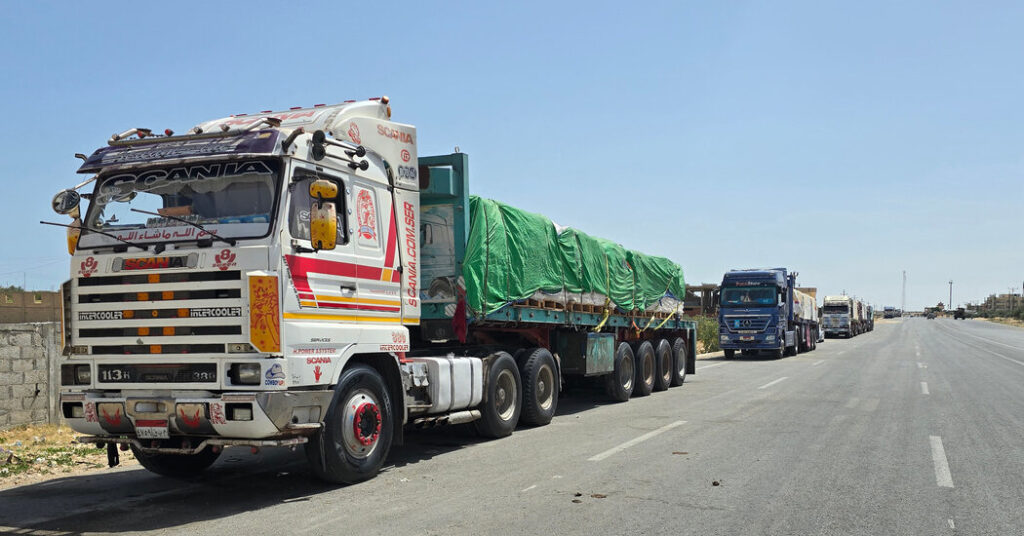Aid trucks from Egypt entered the Gaza corridor on Sunday under a new U.S.-brokered deal to reopen vital channels for humanitarian aid, the Israeli military and the Egyptian Red Crescent said.
Egypt has blocked aid from passing through its territory into the enclave since Israel seized the Rafah crossing to southern Gaza in early May. Both sides blame each other for the closure of the crossing, even as aid has been piling up from Egypt.
Under pressure from the United States, Egypt announced on Friday that as a temporary measure it had agreed to reroute trucks through the Israeli-controlled Kerem Shalom crossing, about two miles from the Rafah crossing.
The Israeli military said in a statement that about 126 trucks from Egypt carrying food, fuel and other necessities entered the Gaza corridor through Kerem Shalom on Sunday. Ahmed Ezzat, an official with the Egyptian Red Crescent, said the trucks were inspected by Israeli officials.
The amount of food, water and medicine arriving in Gaza has dropped sharply since the war began nearly eight months ago. As a result, the United Nations and aid groups have been warning of widespread hunger in the enclave and urging Israel to open more channels to allow aid in. But aid flows to Gaza via two main land routes have been disrupted in recent weeks.
Kerem Shalom is one of these crossing points, located at the intersection of Gaza, Israel and Egypt. Israel temporarily closed Kerem Shalom weeks ago after a Hamas rocket attack killed four soldiers. Israel has since allowed some aid to enter Gaza through Kerem Shalom, but its distribution has been a source of contention. Israel says aid agencies must distribute aid. But the agencies say the Israeli military’s activities in southern Gaza make their job nearly impossible.
Another major aid gateway is in Rafah, between Gaza and Egypt. Israeli forces captured the crossing overnight on 6 May as part of an initial push into the city.
Israel has been under international pressure to find a way to reopen Rafah to prevent a worse humanitarian disaster in Gaza. On Friday, the World Court ordered Israel to “open the Rafah crossing to the unimpeded delivery” of aid. Israel pledged to do so but said it would also “prevent terrorist groups from taking control of the crossings”.
The Egyptian government also initially refused to send aid trucks to Kerem Shalom when the Rafah crossing was closed, a move that U.S. and Israeli officials said was an attempt to force Israel to abandon its operation in Rafah.
Egypt and the United States announced on Friday that Cairo had agreed to temporarily allow the movement of food, basic supplies and fuel from its territory to Gaza through Kerem Shalom. Egyptian President Abdel Fattah el-Sisi stressed that the measure was only a stopgap measure until a “new legal mechanism” was found on the Gaza side of the Rafah crossing.
It is unclear when the Rafah crossing will reopen for aid. The White House said U.S. officials were expected to travel to Cairo this week “to support efforts to reopen the Rafah crossing.”

